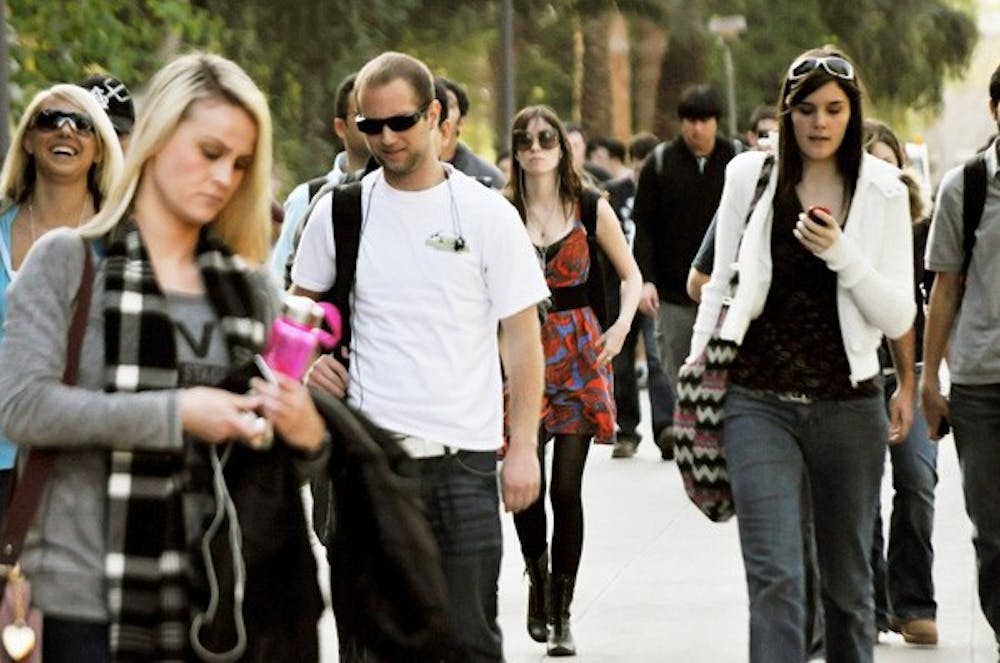ASU Police and the Coalition for Mall Safety (CMS) are considering placing restrictions on bikes, skateboards and other forms of transportation on the Tempe campus.
The two organizations are working together to make the Tempe campus safer for pedestrians. There are several plans in the works, including a full bike ban and different versions of partial restrictions.
If approved by University administration, any actions could be implemented by the fall semester.
The idea was raised because ASU Police receives several complaints per week from students whom bicyclists and skateboarders either hit or almost hit.
Assistant Chief of Police Jay Spradling said ASU Police is supposed to enforce non-pedestrian traffic on campus malls in accordance with ASU’s Transportation Code, which was first written in 1963 and last updated in 2008.
The Transportation Code is a set of rules assembled by the CMS, a group of organizations and individuals working together to address pedestrian and non-pedestrian traffic issues at ASU’s four campuses.
The code highlights many simple issues related to getting around campus, such as not going too fast and staying a safe distance from others.
Anyone violating the rules can be cited and fined based on the level of the offense, with fines ranging from $15 to $60 per offense.
Anyone committing the highest level of offense is also expected to attend a mall safety class. The highest offenses include operating a vehicle inside a building or colliding with another person.
Spradling said ASU Police doesn’t enforce this code much. The rules, which focus on things like courtesy and proximity, are not clearly defined, thus leaving each case up to the officer’s judgment.
Because the code is not helping to fix the problem, ASU Police is forced to consider options like banning all modes of transportation on campus.
Seeing bicycles on campus is a sore subject for biochemistry senior Stacey Burrier, who said a ban on bikes is a good idea.
“I get hit [by bikes or skateboards] on campus at least twice a week, and I’m only here two days,” she said.
Spradling said details of the ban are still under discussion.
Some potential options are only banning any form of transportation during the busy hours on campus — 9 a.m. to 3 p.m. — or allowing students to ride to campus but then walk their vehicles in areas of heavy traffic.
Another option is to revise the Transportation Code, because it hasn’t been updated for a few years. During this time, enrollment has grown by about 3,358 students across all four campuses. A revision of the code could help officers actually enforce the rules set forth by the CMS, Spradling said.
Urban planning senior Paul Endelman, who rides his bike around campus, said he would prefer bike-only lanes on campus to a bike ban.
Spradling said bike lanes are an option, but he does not believe that they will work.
“A few years ago, we tried having bike lanes on campus, but there were still safety issues because pedestrians had to cross through those lanes,” he said.
Elementary education alumna Lori Lieberman, who also rides her bike around campus, doesn’t believe that bikes are causing on-campus problems. Rather, the real issue is people riding bikes while not paying attention.
“It’s an idiot issue. If people actually paid attention, there would be not accidents,” she said.
Reach the reporter at danielle.legler@asu.edu





